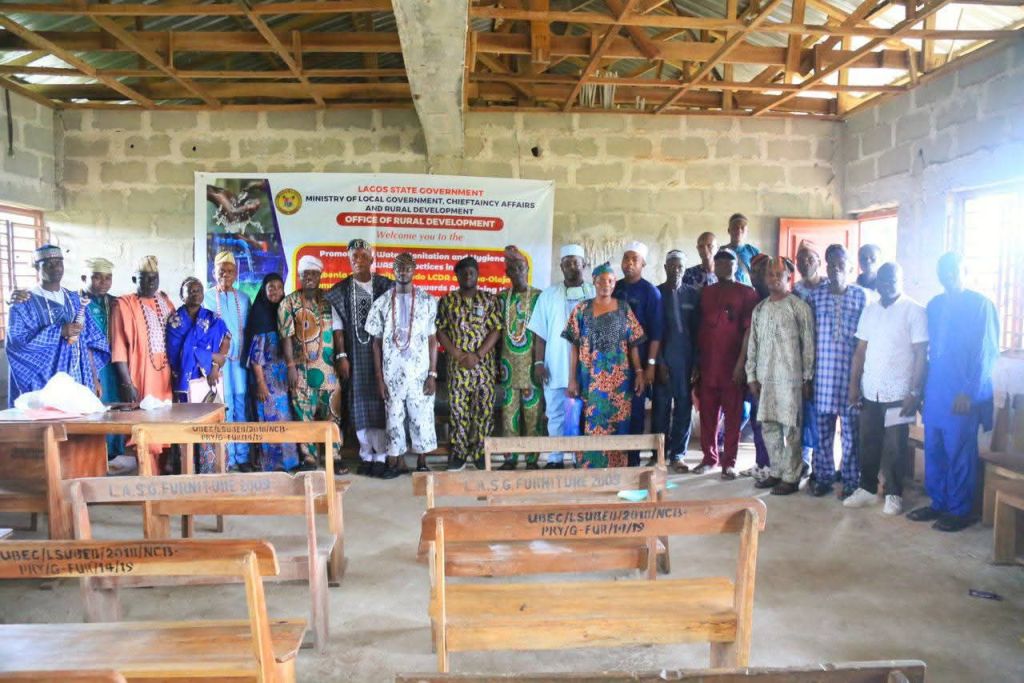
The Lagos State Government has intensified its Water, Sanitation and Hygiene (WASH) advocacy drive, taking the sensitisation campaign to Iba-Oloja Community in Ibeju-Lekki Local Council Development Area (LCDA) as part of ongoing efforts to boost public health, prevent diseases, and enhance living standards in rural areas.
The initiative, themed “Promotion of Water, Sanitation and Hygiene Practices in Iba-Oloja Community, Ibeju-Lekki LCDA”, was organised by the Technical Services Department of the Lagos State Office of Rural Development.
It aligns with the Lagos State Multi-Sectoral Plan of Action for Food and Nutrition Security (2025–2029), which recognises WASH as a critical driver of public health, food safety, and overall community well-being.
Speaking at the programme, the Special Adviser to the Governor on Rural Development, Dr. Nurudeen Yekinni Agbaje, underscored the vital role of WASH in preventing life-threatening illnesses and ensuring sustainable rural development.
”Without clean water, people face the risk of waterborne diseases such as cholera, typhoid, and dysentery. Without sanitation, waste contaminates our environment and water sources.”
”Without good hygiene practices, infections spread rapidly—especially among children,” Dr. Agbaje stated.
“This is why promoting WASH is inseparable from ensuring food and nutrition security.”
The sensitisation also featured an interactive session led by Engineer Muslimat Sanni Anibire, who urged residents to adopt proper handwashing techniques and safe hygiene habits to curb the spread of infectious diseases.
She emphasised the importance of passing this knowledge to households to help reduce infant mortality and improve general community health.
Expressing their appreciation, members of the Baale-in-Council in Iba-Oloja praised the State Government’s commitment to not only providing infrastructure but also delivering life-saving knowledge that enables residents to live healthier lives.
The event drew participation from the Iba-Oloja Council of Baales, Community Development Association (CDA) members, and residents, creating a platform for community-wide engagement on the importance of clean water, sanitation, and hygiene in sustaining rural health and living standards.
